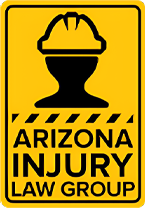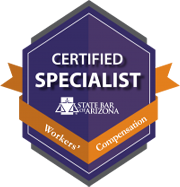When Working in an Arizona Health Facility is Hazardous to One’s Health

Working in health facilities such as hospitals, health clinics, and other medical provider facilities, has its own set of challenges. Nurses, doctors, medical specialists, and orderlies work daily with those who are ill with infectious diseases, who may be combative because of mental disorders or are hard to move because they are overweight.
Who is at Risk?
Nurses and orderlies, including attendants, do most of the work with dealing with patients, while doctors have less interaction except for conducting medical reviews and performing surgeries. X-Ray technicians must protect themselves while working daily to avoid any radiation accumulation.
The United States Department of Labor and OSHA states that healthcare workers suffer more illness and injuries in the workforce than any other industry, including manufacturing. Sometimes, a work-place injury can happen in unexpected and unforeseen ways.
A nurse was recently injured in a hospital elevator accident in Fort Worth, Texas, in January of 2019, when the elevator malfunctioned, trapping and seriously injuring the nurse. While hospitals may observe all the safety regulations as defined by OHSA for its industry, there are always unforeseen events and outcomes.
Other healthcare workers at risk are those responsible for cleaning up after surgeries, cleaning patient rooms and other high-risk areas, cafeteria areas, waiting room lounges, and more. When people are visiting patients, they often bring their own cold and flu bugs with them.
Hazards for Nurses
Nurses, male and female, do a lot for their patients every day, including heavy lifting of equipment and supplies, moving people from one bed to another, conducting blood draws, giving shots, and changing catheters. They can be exposed to bloodborne pathogens and biological hazards, even though safety measures are in place, such as proper disposal of needles and disposing of contaminated materials in designated containers.
Doctors
Doctors must protect themselves against stress when working in a high-volume ER hospital. When shooting or bombing events occur, everyone is on call and doctors experience moving from one surgery to another in quick succession as they try to save lives. The danger is in experiencing fatigue and making poor judgment calls when events are moving quickly.
- Job Stress and Overtime Hours
Nurses also deal with stress on the job when procedures must be done quickly and efficiently to help a patient in extreme need, such as in the emergency room (ER). Nurses are first on the scene when there is an emergency, such as respiratory failure or heart attack, and must try to stabilize a patient while the doctor is still on his or her way.
If there are not enough nurses on the shift, then it means extra work to make all the rounds on the hospital floor, ensuring that each patient gets the medication they need to have less pain after surgery and to help with recovery. Filling out patient paperwork or online documentation is an ongoing process throughout the day.
If you are a healthcare professional filing for Workers’ Compensation and need help, call us at once for a consultation. 602-346-9009
Get Help Today
Call Immediately For A Free, No Obligation Consultation And Let Us Help You Put Your Life Back On Track. Let Us Help You
Regain Normalcy And Stability Again. We Want To Help You Get The Benefits You Need And Deserve!


